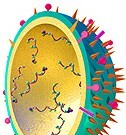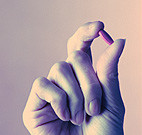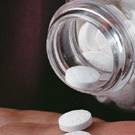Epidemic of Rx Opioid Abuse May Be Waning in U.S.
Heroin abuse/overdoses on the rise may be one reason prescription-drug abuse is down
CDC: Neural Tube Defects Declining in the United States
Still, not enough women are getting enough folic acid
CDC: This Year’s Flu Vaccination Offers 23 Percent Protection
CDC urges early antiviral treatment if symptoms appear
Antenatal Corticosteroid Use Up, Even When Not Optimal
From 1988 to 2012, increase in optimal, suboptimal, and questionably appropriate use
Working Long Hours? Beware Risky Alcohol Consumption
Researchers find link between long hours on the job and excess alcohol consumption
FDA: Stimulation Device Approved to Treat Obesity
Targets vagus nerve which regulates hunger
Propranolol, Doxycycline Combo Safe, Effective in Rosacea
Greater reduction in assessment of rosacea clinical score with combination treatment
No Negative Consequences of Guidelines for Antibiotic Therapy
No change in length of stay, total costs, inpatient pharmacy costs among children with pneumonia
Guidelines Presented for Clinical Documentation in 21st Century
Recommendations provided for clinicians, provider institutions, government regulators, payers
Over 10 Percent of Patients Taking Aspirin Inappropriately
For many users, odds of heart attack, stroke are lower than risk of serious bleeding



















